Citroen C4 vs Hyundai Bayon - Differences and prices compared
Compare performance (156 HP vs 90 HP), boot space and price (20600 £ vs 20100 £ ) at a glance. Find out which car is the better choice for you – Citroen C4 or Hyundai Bayon?
Costs and Efficiency:
Price and efficiency are key factors when choosing a car – and this is often where the real differences emerge.
Hyundai Bayon has a barely noticeable advantage in terms of price – it starts at 20100 £ , while the Citroen C4 costs 20600 £ . That’s a price difference of around 505 £.
Fuel consumption also shows a difference: Citroen C4 manages with 4.70 L and is therefore evident more efficient than the Hyundai Bayon with 5.80 L. The difference is about 1.10 L per 100 km.
Engine and Performance:
Under the bonnet, it becomes clear which model is tuned for sportiness and which one takes the lead when you hit the accelerator.
When it comes to engine power, the Citroen C4 has a clearly edge – offering 156 HP compared to 90 HP. That’s roughly 66 HP more horsepower.
In acceleration from 0 to 100 km/h, the Citroen C4 is convincingly quicker – completing the sprint in 8 s, while the Hyundai Bayon takes 11.90 s. That’s about 3.90 s faster.
There’s also a difference in torque: Citroen C4 pulls distinct stronger with 270 Nm compared to 172 Nm. That’s about 98 Nm difference.
Space and Everyday Use:
Cabin size, boot volume and payload all play a role in everyday practicality. Here, comfort and flexibility make the difference.
Both vehicles offer seating for 5 people.
In curb weight, Hyundai Bayon is a bit lighter – 1175 kg compared to 1403 kg. The difference is around 228 kg.
In terms of boot space, the Citroen C4 offers slightly more room – 510 L compared to 411 L. That’s a difference of about 99 L.
When it comes to payload, Hyundai Bayon a bit takes the win – 460 kg compared to 406 kg. That’s a difference of about 54 kg.
Who wins the race?
The Citroen C4 proves to be wins the duel decisively and therefore becomes our DriveDuel Champion!
Citroen C4 is the better all-rounder in this comparison.
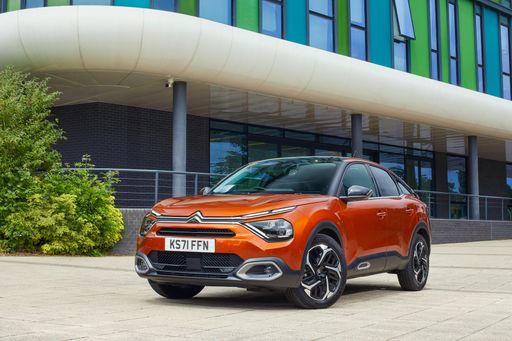
Citroen C4
Costs and Consumption
View detailed analysis
Engine and Performance
View detailed analysis
Dimensions and Body
View detailed analysis
Citroen C4
Citroën C4 wears its French eccentricity with confidence, pairing bold, sculpted styling with a supremely comfortable ride that turns mundane commutes into a gentler affair. If you value relaxed comfort, clever practicality and a car with personality rather than pretence, the C4 is a charming, sensible choice — and it won't make you miss the usual hot‑hatch theatrics.
details
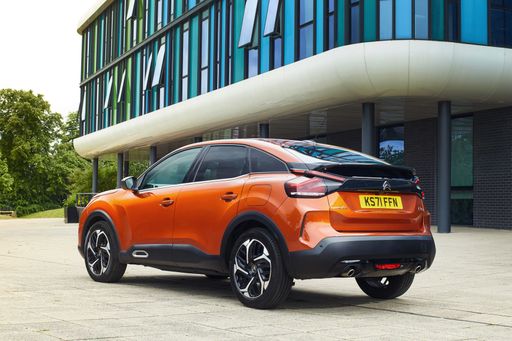
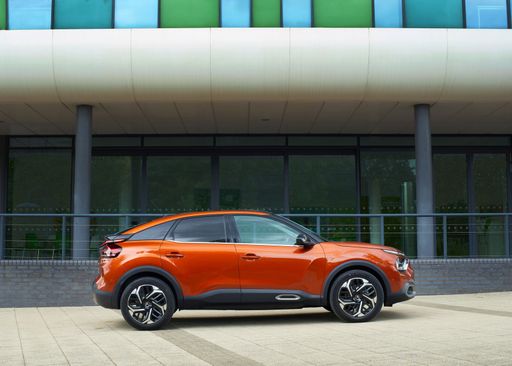
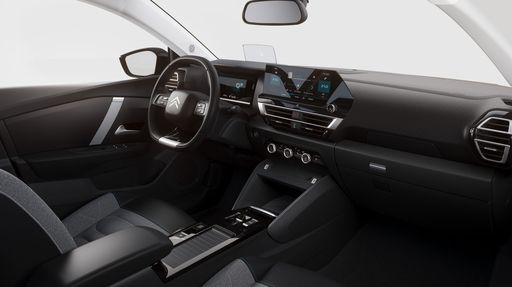
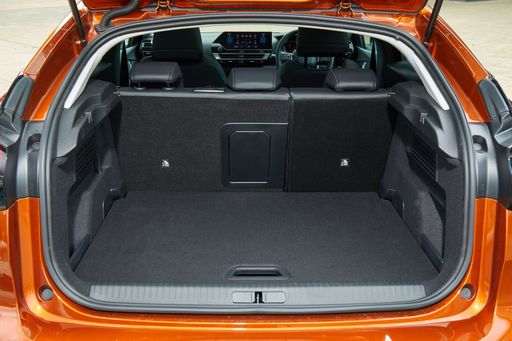
Hyundai Bayon
The Hyundai Bayon slips neatly between city runabout and small SUV, offering surprising practicality and a fresh, confident design that stands out in urban traffic. It's an easy buy for shoppers who want smart packaging, tidy handling and a dash of personality without fuss — a sensible little crossover that makes everyday driving a bit more enjoyable.
details




Costs and Consumption |
|
|---|---|
|
Price
20600 - 32000 £
|
Price
20100 - 25800 £
|
|
Consumption L/100km
4.7 - 4.8 L
|
Consumption L/100km
5.80 L
|
|
Consumption kWh/100km
14.5 - 15.3 kWh
|
Consumption kWh/100km
-
|
|
Electric Range
354 - 427 km
|
Electric Range
-
|
|
Battery Capacity
46 - 51 kWh
|
Battery Capacity
-
|
|
co2
0 - 108 g/km
|
co2
130 - 132 g/km
|
|
Fuel tank capacity
-
|
Fuel tank capacity
-
|
Dimensions and Body |
|
|---|---|
|
Body Type
SUV
|
Body Type
SUV
|
|
Seats
5
|
Seats
5
|
|
Doors
4 - 5
|
Doors
-
|
|
Curb weight
1403 - 1659 kg
|
Curb weight
1175 - 1200 kg
|
|
Trunk capacity
380 - 510 L
|
Trunk capacity
411 L
|
|
Length
4350 - 4580 mm
|
Length
-
|
|
Width
1800 - 1834 mm
|
Width
1775 mm
|
|
Height
1520 - 1525 mm
|
Height
-
|
|
Max trunk capacity
1250 - 1360 L
|
Max trunk capacity
-
|
|
Payload
379 - 406 kg
|
Payload
450 - 460 kg
|
Engine and Performance |
|
|---|---|
|
Engine Type
Electric, Petrol MHEV
|
Engine Type
Petrol
|
|
Transmission
Automatic
|
Transmission
Manuel, Automatic
|
|
Transmission Detail
Reduction Gearbox, Dual-Clutch Automatic
|
Transmission Detail
Manual Gearbox, Dual-Clutch Automatic
|
|
Drive Type
Front-Wheel Drive
|
Drive Type
Front-Wheel Drive
|
|
Power HP
110 - 156 HP
|
Power HP
90 HP
|
|
Acceleration 0-100km/h
8 - 10.8 s
|
Acceleration 0-100km/h
11.9 - 13.3 s
|
|
Max Speed
150 km/h
|
Max Speed
-
|
|
Torque
205 - 270 Nm
|
Torque
172 Nm
|
|
Number of Cylinders
3
|
Number of Cylinders
3
|
|
Power kW
81 - 115 kW
|
Power kW
66 kW
|
|
Engine capacity
1199 cm3
|
Engine capacity
998 cm3
|
General |
|
|---|---|
|
Model Year
2025
|
Model Year
2025
|
|
CO2 Efficiency Class
A, C
|
CO2 Efficiency Class
D
|
|
Brand
Citroen
|
Brand
Hyundai
|
What drivetrain options does the Citroen C4 have?
The Citroen C4 is offered with Front-Wheel Drive.




